It is full-on spring here in Appalachia and the bees are rocketing in and out of their hives like tiny cannonballs. Wild cherry, apple, pear, plum, blueberry, and other blossoms beckon. Soon the tulip poplars, black locust and black raspberry, the heart of the honey flow plants, will bloom in this astonishing season. The pulse, hum and vibration in the air, this sacred sound and feeling-scape, is palpable, pure and revitalizing.
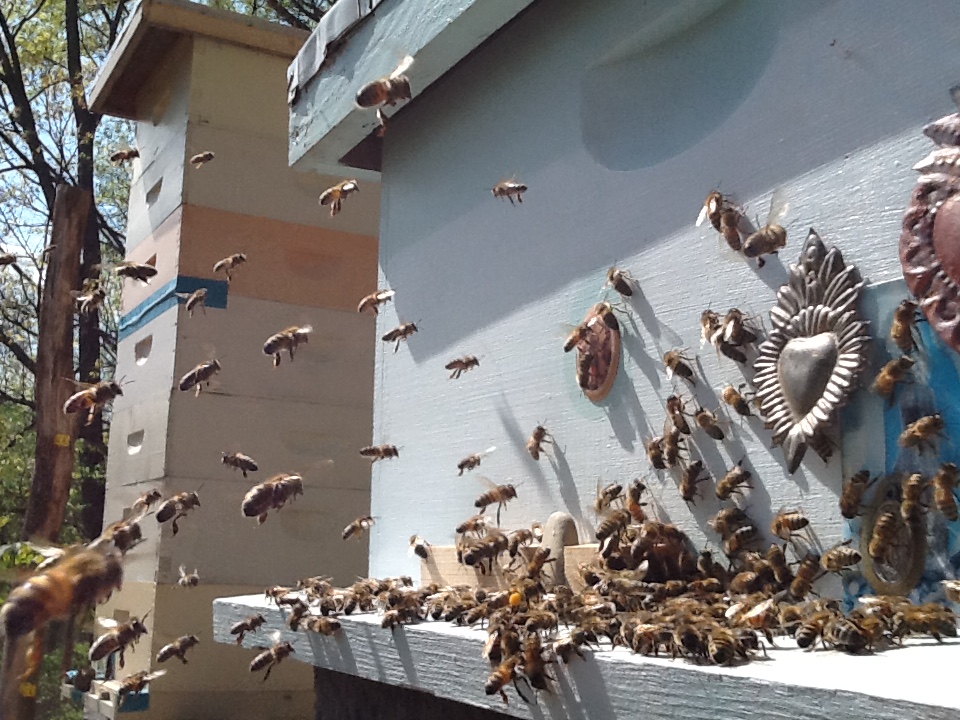 Spring in the bee sanctuary.
Spring in the bee sanctuary.
I am very blessed by invitations to teach and travel in the world on the Good Bee Road. I meet remarkable people (two-legged and wing-ed) and one of the greatest pleasures of my life is to explore the many respectful, reverent and benevolent ways that people choose to express their relationship with bees. Last year, I returned to Turkey to share my bee-loving heart in Istanbul (my most favorite city in the world) and also to join a small constellation of extraordinary people from England, Estonia, Greece, Iran, Germany, and Turkey. We converged as one hive and collaborated in the seeding, dreaming and emergence of Simorgh Wisdom School. We also celebrated Nowruz together, the Persian New Year, which marks the beginning of spring.
 The Simorgh hive … I often bring antennae when I travel.
The Simorgh hive … I often bring antennae when I travel.
A man who lived locally was also invited to join us for some of our meals, a Syrian refugee who had cobbled together a life in that small town near the Aegean. Over tea one afternoon, I asked him about bees. I am always curious about people’s practices and I wondered about Syria. He replied that while beekeeping was not his family’s main focus (they had a lucrative business in a city before the bombings), they had some land in the country and had kept hives there in the past. Every spring, he said, beekeepers moved their bees to the Black Sesame flowers, which he also called Love in the Mist, and the honey that bees made from that nectar was particularly treasured. And now this tradition has been fractured. Many beekeepers can no longer move their bees at all because of the war.
When we consider some of the challenges bees face these days, we often think about diseases, mites, encroached habitat, and the increasingly toxic environment bees try to survive in … one that has become saturated with “ides” (pesticides, fungicides, herbicides), neonicotinoids, glyphosate (think Roundup), GMOs, and other unfortunate human choices. But there is another threat to bees that came into my consciousness last year. War. The war in Syria is utterly devastating all life there, including the honeybees.
The field of me shifted with his stories. Syria began to have a face and I could feel her broken heart. As I asked more questions, he came to understand more of my own call, that I am a free-range bee lover who shares inspiration with others from my journeys. I recall how heart-stoppingly still he became at one point in the conversation. He conveyed that he was fine for his stories to be passed along, but to please not reveal his name nor show his photo, because his life might be endangered. I cannot describe how sobering a request that was nor how carefully I have honored it ever since.
As the tea flowed amongst us, his story poured out. He had to flee Syria (through a minefield, at night) to avoid being conscripted into the army to fight a war he doesn’t believe in. He hasn’t seen his wife and children for years. His youngest daughter was about four months old when he left and is now, I believe, four. His children have not attended school for the last five years. So many schools have been destroyed, so many places in Syria are unsafe, that many children have suffered this same fate. His successful family business was destroyed in a large city and later, their home was directly bombed (within hours of the family fleeing to a more remote location in the country where they own a tract of land). He and his wife agreed that he would leave Syria while she and their children would stay on the land, the only thing left that they owned. They hoped it would be a safe rural refuge for his family and that he would join them to rebuild a life together there, once the war is over.
One of his lifelines was a collection of family photos he carries on a thumb drive, pictures that are years old that he brought another evening. The precious united nations of us sat on the floor, gathered around a laptop. We met his family, image by image. We asked for each of their names and he called them out … aunts and uncles, parents, cousins, nieces and nephews, his wife and children … naming them, one by one. At one point he was overcome by emotion. I don’t think anyone had expressed interest in his family in such a way since he had been parted from them. And it was humbling how un-bitter he was. Immeasurably sad, yes. Sorrow had settled into his life, adding years to his face, but not bitterness.
I met some of the sorrows of the world on that trip. I saw lifeboats being confiscated in the Aegean to prevent other refugees from fleeing to safe harbor, to the more receptive islands in Greece. A new friend in Istanbul told me that some of the people from the village he grew up in, who are traditionally fishermen, have found it more lucrative to deliver Syrian refugees to places they hope will let them stay … and to take them for a fee. Two other friends in Turkish cities had lost people they cherished in suicide bombings. I felt the anxiety of other beloveds of mine, some professors and one in the entertainment industry, who had signed a petition for peace in their country (something many of us have done hundreds of times) and are now on a list to be investigated.
And every single day, I also met the most heart-opening, beautiful people, tending to the sacred in the ordinary tasks of living, extending themselves through greetings, gestures, smiles, eye contact, time in their bee yards, stories, music, food and (the inevitable) tea in the most welcoming and generous ways. If ever there were a true eco-green-holy-hearted-sustainable choice, I believe it is to compost many of our thoughts and fears about each other and to tend that compost pile as if our life depended on it, because it does.
I raise a glass to a man I cannot name, whose face I cannot show, and who will probably never read this … and to the beekeepers who cannot move their bees to the black sesame flowers and other nectar sources because it is unsafe … to those who have left their bees (and everything else) because they are fleeing for their lives … and for the people and bees who have already perished (may peace be upon their souls). My heart feels the sharp edge of broken-ness that such things should ever happen to anyone. Anywhere. Ever.
Amongst the epic events of this last year, we also lost our home to fire while I was on that trip to Turkey. We are just now on the threshold of getting back on our feet. Our local and world community responded so generously to us that we remain on our knees in gratitude. And I am ever mindful that we did not have to flee to hostile borders and our home wasn’t destroyed because of an intentionally aggressive act. Challenging things happen in life … and then there are tragedies. Ours was not the latter.
I have felt so many things across this last year as I follow what is happening in Syria, Turkey, Standing Rock, Flint Michigan, Washington DC, North Carolina, and other places and spaces. And despite the monumental hardship that is so much in evidence in our world, as well as the chaos we experienced with our own hallowed house fire, I have also felt a heightened awareness of that which never changes, ever. There is a strange river of peace that runs beneath everything, that the bees enliven and help me re-remember every day of my life. Heart-breaking and heart-opening events strangely coexist, stretching my capacity to abide with such extremes and turning me inward towards the only shore that makes a holy difference … that of my heart.
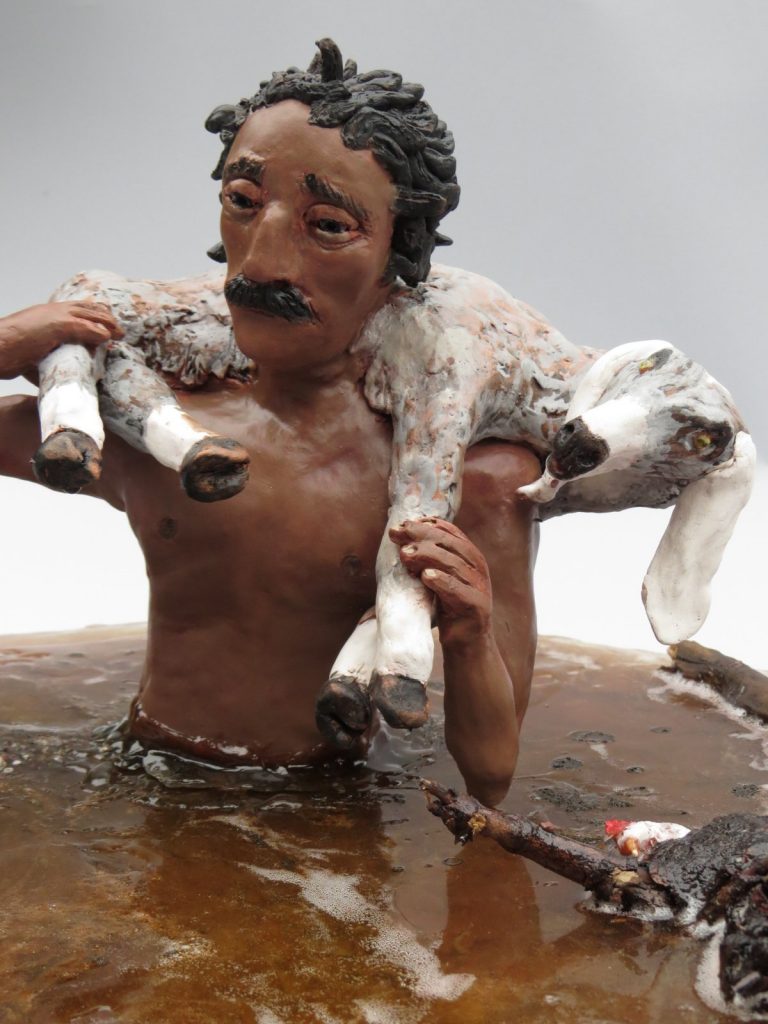 Photo, courtesy of Walker Silsbee.
Photo, courtesy of Walker Silsbee.
When I returned from Turkey, my friend Walker Silsbee was sculpting a Syrian man fleeing his country. It is now completed and I am immensely moved by it. I think of our friend. He didn’t take a sheep with him when he left Syria nor did he escape through water. He did disappear in the night, miraculously making his way through a minefield with a tiny thumb drive tucked in his pocket, carrying pictures of the people he loves most in the world.
Through the peculiar and brilliant quantum physics of the heart, I feel your presence and preciousness in the world, my friend. You extended an invitation to us to come visit your pistachio orchards during the harvest time, once the war is over, and I carry that possibility in my heart as a prayer for peace. This is for you, from my heart to yours, my family to yours (two-legged, four-legged, root-ed … and wing-ed). Here’s to Love in the Mist and the love in our midst, now and always.
Blessed be. Blessed bees.
Debra
PS I invite you to The Sacred Path of Bee if this journey speaks to your heart. I invite you to consider anything and everything that speaks to your heart.

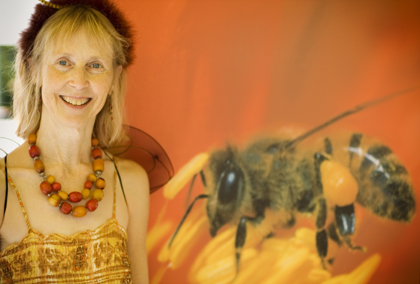
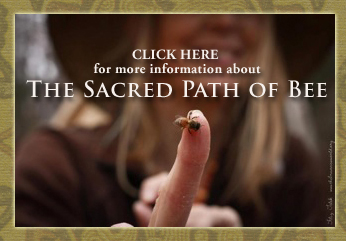

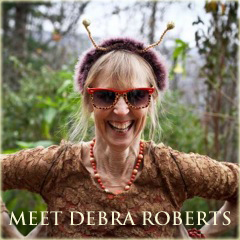
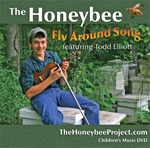

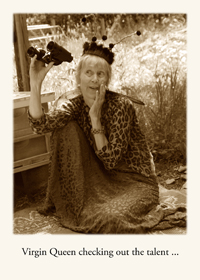

{ 2 comments… read them below or add one }
for the moment – only thank you
You are so welcome.